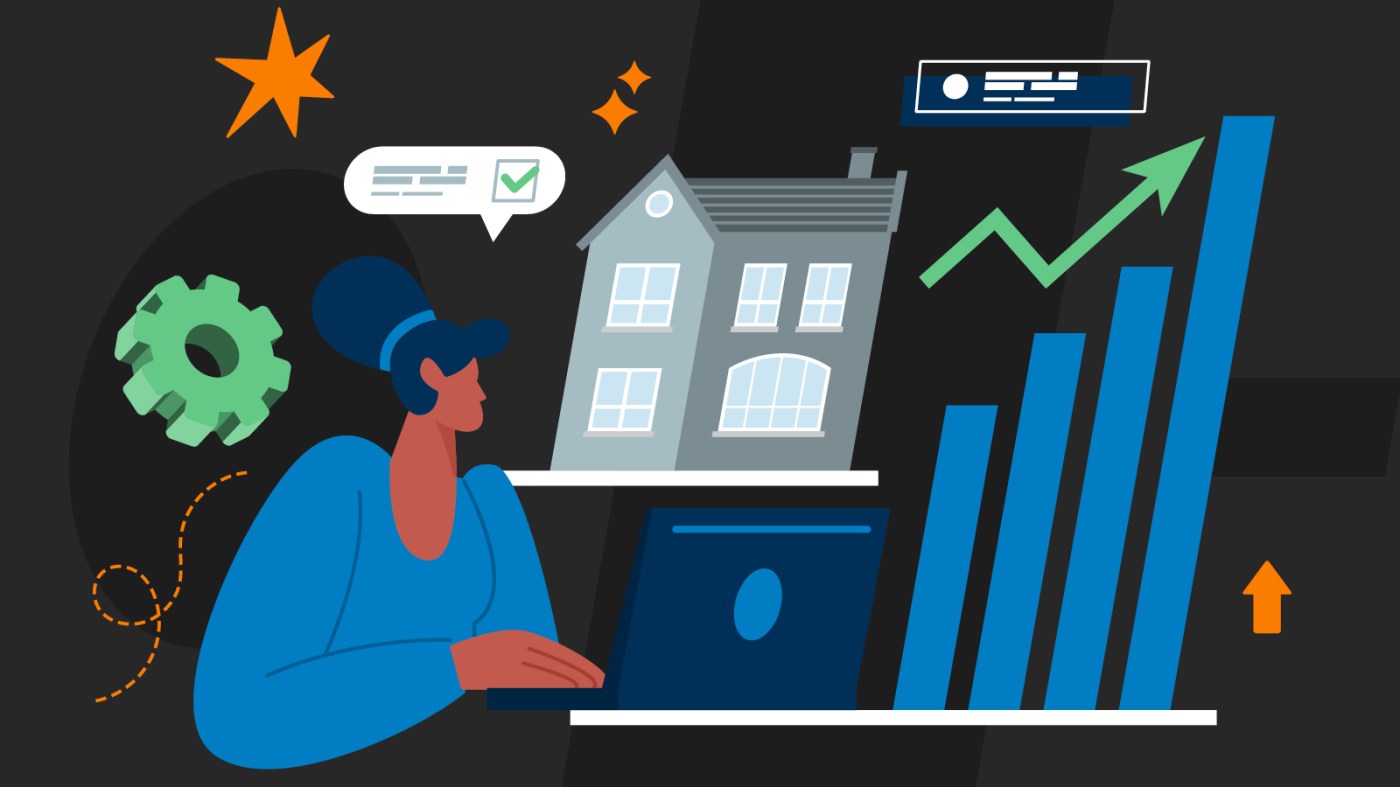The average home value today is $363,505. But how does yours measure up?
Working to understand your home’s worth, including determining home value every so often, is a solid idea, even if you just complete a financial health check. But, if you’re planning on selling, refinancing or taking out a new loan any time soon, it’ll be a requirement.
Whether it’s been a few months or fifteen years since your last calculation, here’s what you need to know to understand your home’s value:
What Your Home’s Value Actually Means
When we talk about home value, there are a few important definitions you’ll need to know. The first is “market value.”
Market value: The price a buyer is willing to pay for your home in today’s market.
This represents how much your home is “worth” on — you guessed it — the market. It might shift and change depending on supply and demand, comparable recent sales, location, condition, and buyer sentiment.
But your home will also have an “appraised value.”
Appraised value: An independent estimate of your home’s worth conducted by a licensed, professional appraiser.
This is a more precise figure, which is why lenders might require an appraisal, whether you’re buying another home or refinancing your current one. Appraisers might also factor in comparable recent sales and location, but they’ll dig much deeper into size, condition, and improvements.
It’s important to note that neither type of home value factors in any outstanding mortgage balance — that comes into play when calculating your home equity, a different metric. Home value is just about the home’s current worth.
Factors That Go into Determining Your Home’s Value
Whether we’re talking about market value or appraised value, a few factors can influence your home’s worth, positively or negatively:
Location
Imagine an average home in a community with strong schools and convenient amenities. That same structure might be valued differently in an area with fewer resources. This will impact demand and in turn home appreciation.
Condition & Upgrades
Whether you’re determining market value or bringing in an appraiser, it makes sense that homes that have been well cared for will often fetch higher values. Consistent maintenance, strategic remodels (with return on investment at the core), and even curb appeal can increase value.
Comparable Sales (Comps)
Comps are recent homes sold in your area (ideally the same subdivision) within the last six months. They should also be similar in size, age, style, and condition.
Comps influence value because they represent what homes like yours actually sold for, not just their potential to sell. So, a hot market could push comp prices higher, while a sluggish market might drag them down.
Market Conditions
Speaking of markets… The state of homebuying and selling plays a role in determining the value of your home, as well.
Interest rates, supply and demand, and seasonal shifts can all influence what buyers are willing to pay, which then affects your home’s value.
Unique Features
Some homes come with a little something special. If yours has substantial land, impressive views, or some kind of historical significance, it might push the value even higher.
Determining Market Value
When talking market value, determining home value can be fairly simple:
Online Valuation Tools
Many real estate sites now offer valuation tools that you can consult. Just enter your address and the platform will automatically pull data from public records, past sales, and its own algorithms to generate an estimate.
Comps and Local Market Insights
Reviewing recent comparable sales and real estate reports can also provide some insight. Check real estate sites for sales numbers, talk to neighbors, or monitor open houses. Then, pair figures with local insights on the state of the market to further inform value.
Local Real Estate Agents
A real estate agent may also be able to help. They’ll have specialized insight into the current market, your neighborhood, and recent comps better informed by the Multiple Listing Service (MLS).
Just keep in mind that, because these methods won’t provide the appraised value, what you’ll end up with is essentially an educated guess. You’ll be at the whim of online algorithms and macro-economic data, so real-world figures could be quite different.
Determining Appraised Value
Determining home value via an appraisal is usually the most accurate route. And there’s really only one way to go:
Licensed Home Appraiser
Loans and refinances will require an appraisal, conducted by a licensed home appraiser. They’ll bring specialized knowledge and training to the process, as well as detailed market analysis. They’ll also observe your home first-hand and are required to approach the situation objectively.
The result is the most accurate, unbiased valuation of your home.
Wrapping Up: Determining Home Value and Understanding Its Impact
Whether you’re buying, selling, or refinancing, knowing what goes into determining home value can help you make more informed financial decisions. And remember: your home’s value isn’t fixed — it’s dynamic. Checking in on it every few years, even just as a financial health check, is always a good idea.
Happy valuating!
Published on October 6, 2025


